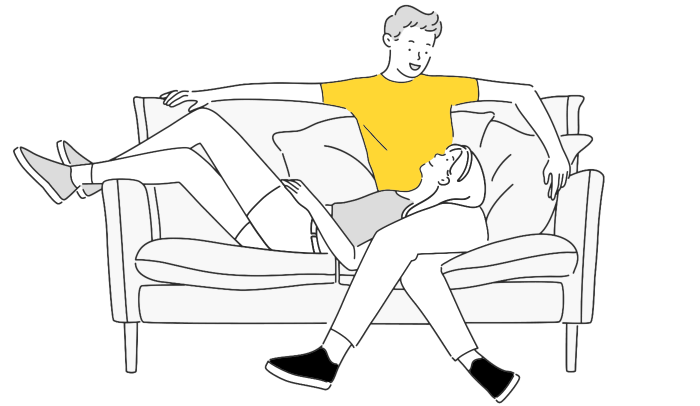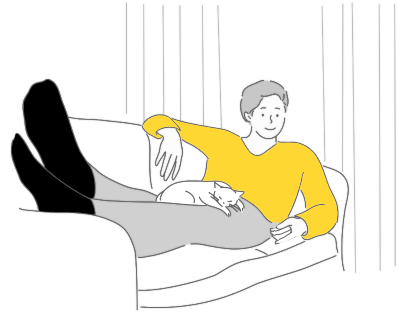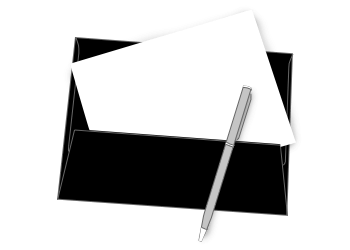
Being busy and overworked has been worn like a badge of honor for years. One thing the pandemic taught a lot of people was the importance of slowing down and staying put. Recently, I read about niksen, the Dutch concept of doing nothing, and thought about how we've all become masters of it while sheltering in place. But to truly master niksen—which most closely translates as “nothing-ing” in Dutch—you've got to be more intentional about your idleness.
You see, doing nothing does not mean wasting time. And that's what the culture of busyness has made us think. Which is why we feel guilty taking a break when working from home or not being productive on the weekend by tackling chores we've put off. When we don't have something to fill our time, we often feel as though we're wasting valuable minutes—we're so accustomed to the constant movement, it can actually be disorientating to slow down.

Which is why my “doing nothing” amounts to flipping through magazines, lounging in a bath and binging on a docu-series with a stiff drink. Perhaps on my better days, it's cleaning out my fridge or organizing my closet. These are all activities that help me relax and recharge. Or, in the case of mindlessly scrolling social media, killing time while waiting around. But that's not niksen. Because they all entail some type of action. And if my mind wanders, it's accidental rather than intentional.
Carolien Hamming is the managing director of CSR Centrum, a Dutch coaching center that helps clients manage stress and recover from burnout. She says when we're all so used to doing something at all times, it's a real challenge to sit and do nothing. And even in the Netherlands, niksen was historically dismissed as laziness or as the opposite of being productive, until it was proven to reduce the stress associated with our over-active lives.
Not into meditation? No problem. This is much better suited for you because instead of trying to focus your attention, you just let go and relax. You don't have to concentrate or channel your thoughts. You simply stop what you're doing and lean into the idleness. Hamming says the key to being idle is stepping back from whatever we're doing and allowing everything to just be ... without being an active participant in it.


The result, researchers at the University of Central Lancashire in Britain found (PDF), is that the inevitable daydreaming that occurs makes us more creative, more adept at problem-solving and better at coming up with creative ideas. That's because when we stop and do nothing, our brains are still processing information and can now use the available power to solve problems still rattling around in our heads. That's how a breakthrough can just occur to you, seemingly out of nowhere.
What's more, as counterintuitive as it sounds, doing nothing is an effective productivity tool, says Chris Bailey, author of The Productivity Project. He believes that nothing saps our productivity quite like an anxious mind. That's because when you're overwhelmed and mentally exhausted, you don't have the necessary fuel to burn to be productive.
Of course, it might take some practice getting comfortable with just doing nothing—like exercise. Hamming encourages her clients to push through the discomfort, taking a few minutes each day to practice niksen and to work up to longer stretches. Set a timer or use a resource like Calm to help you get started. Ideally you should aim for one evening a week without any appointments, activities or obligations. Soon, you'll be a master of doing nothing and be all the better for it.
Boost Your Creativity

Psychologists have found that America is experiencing a “creativity crisis,” with scores decreasing each year since 1990 (even though IQ may be increasing).
































